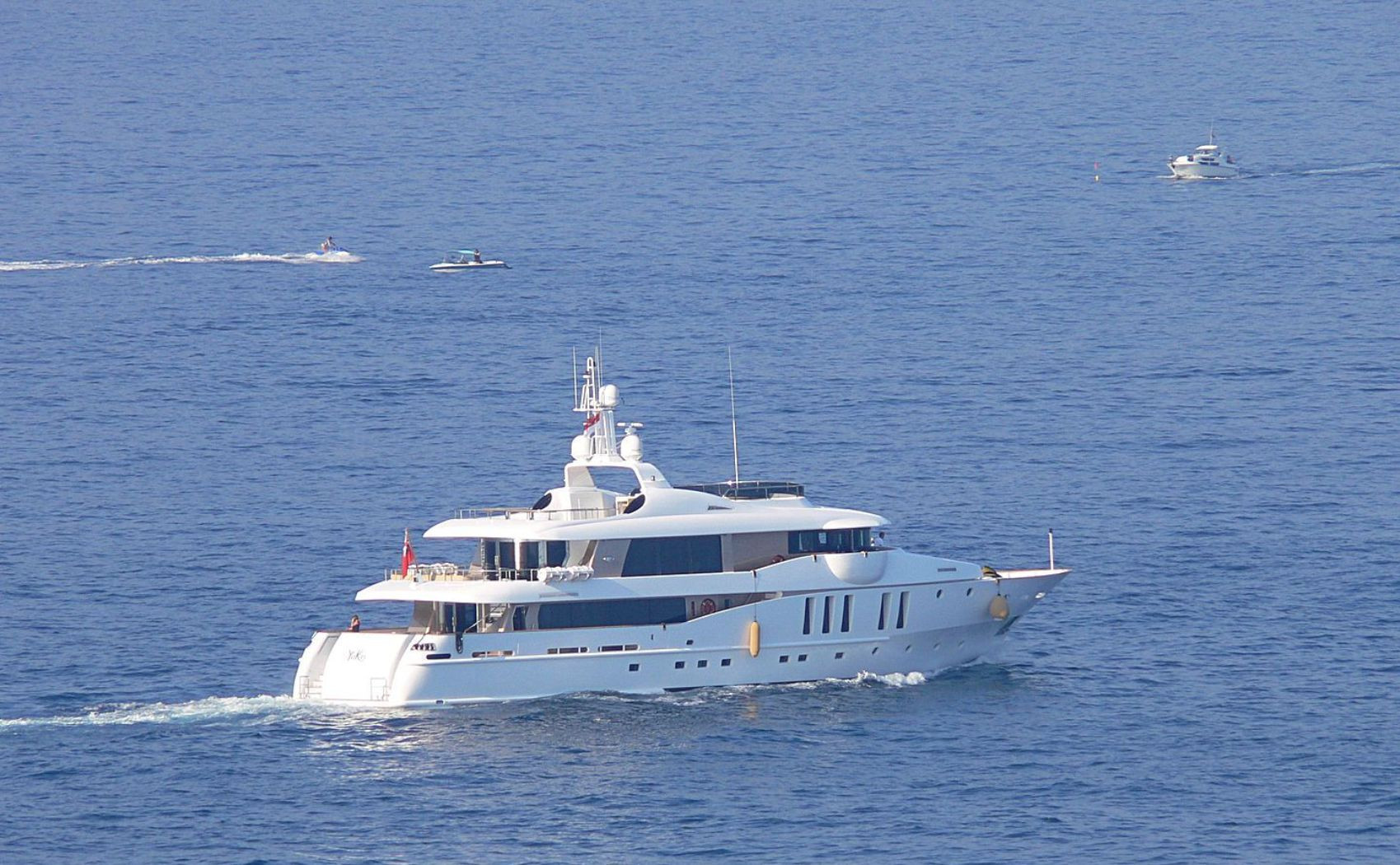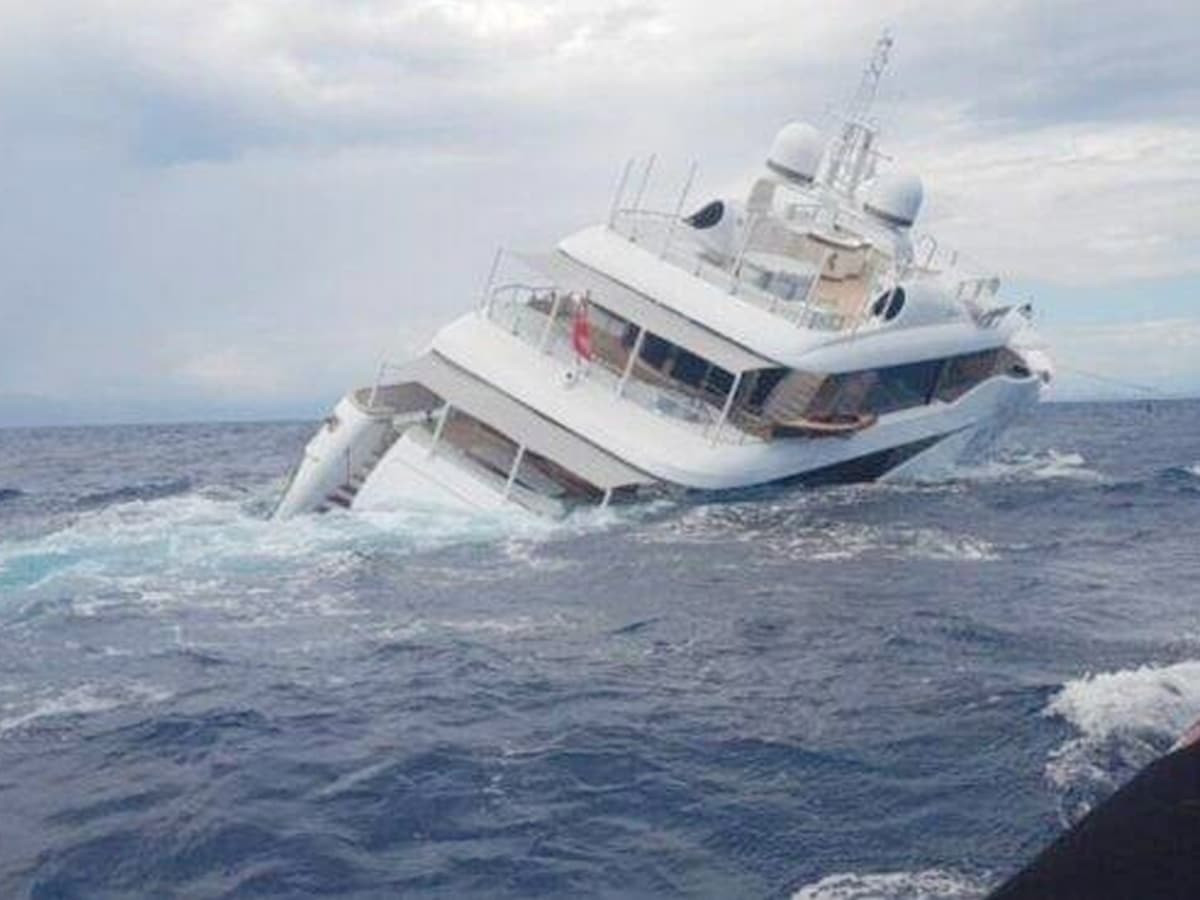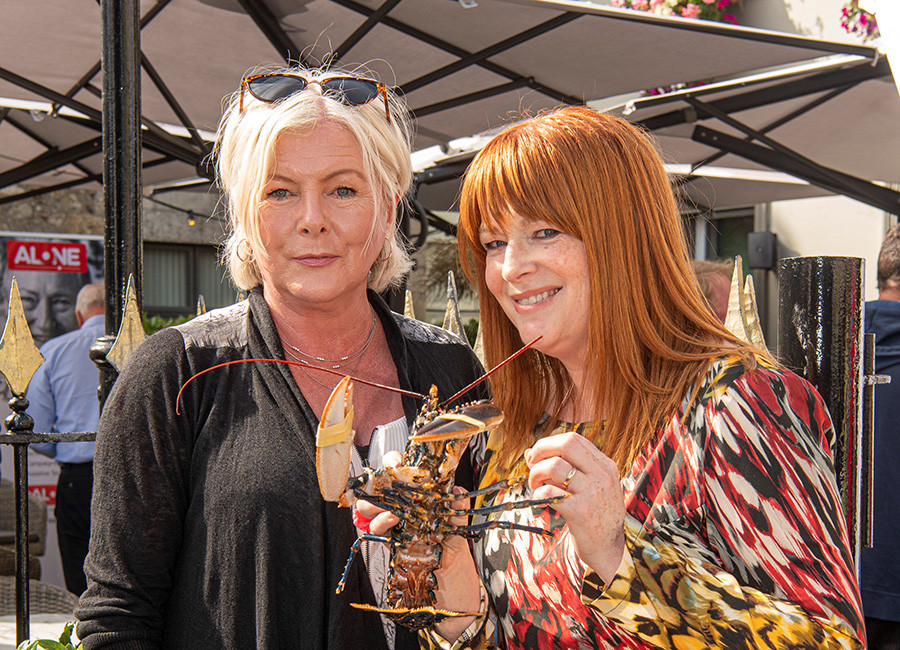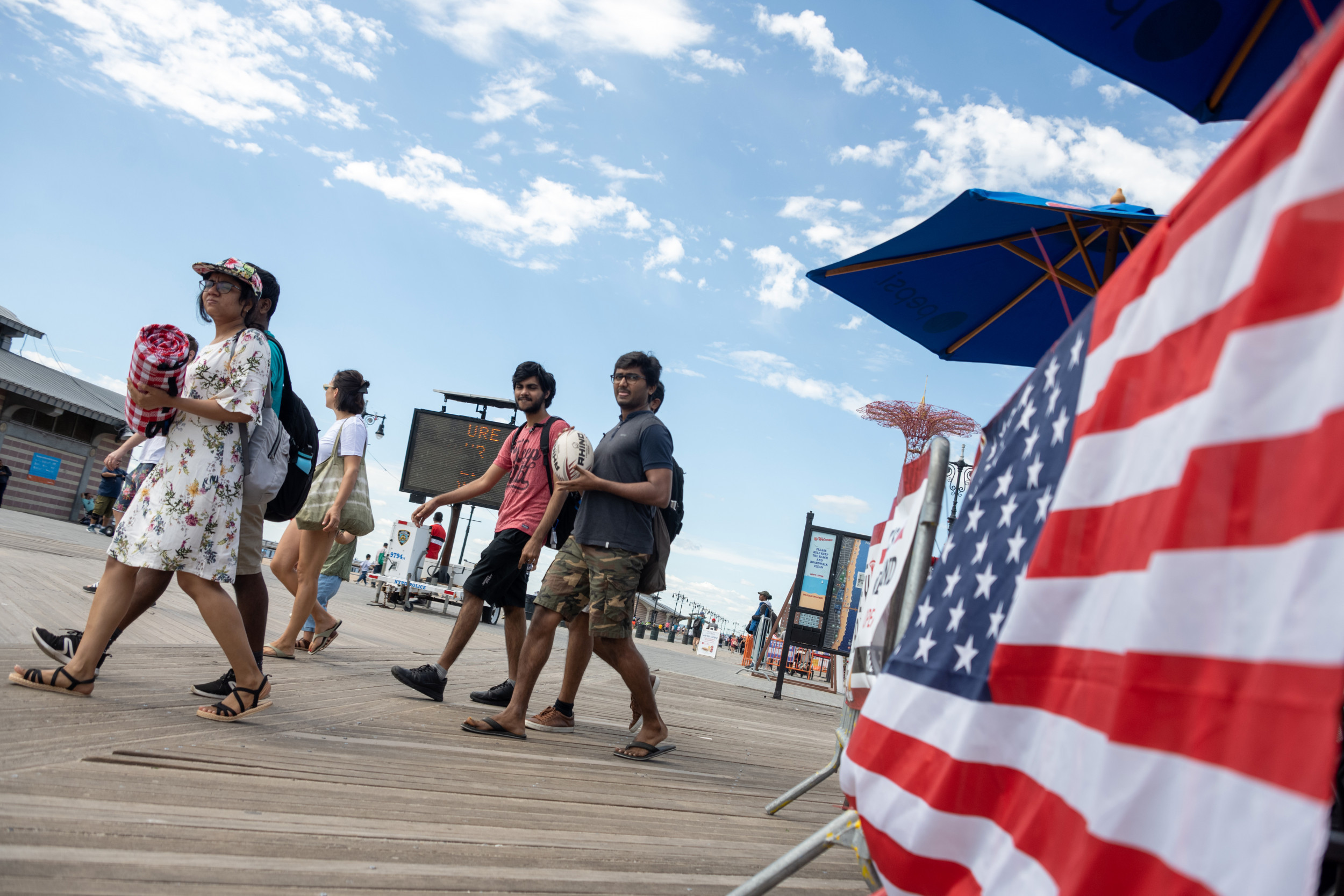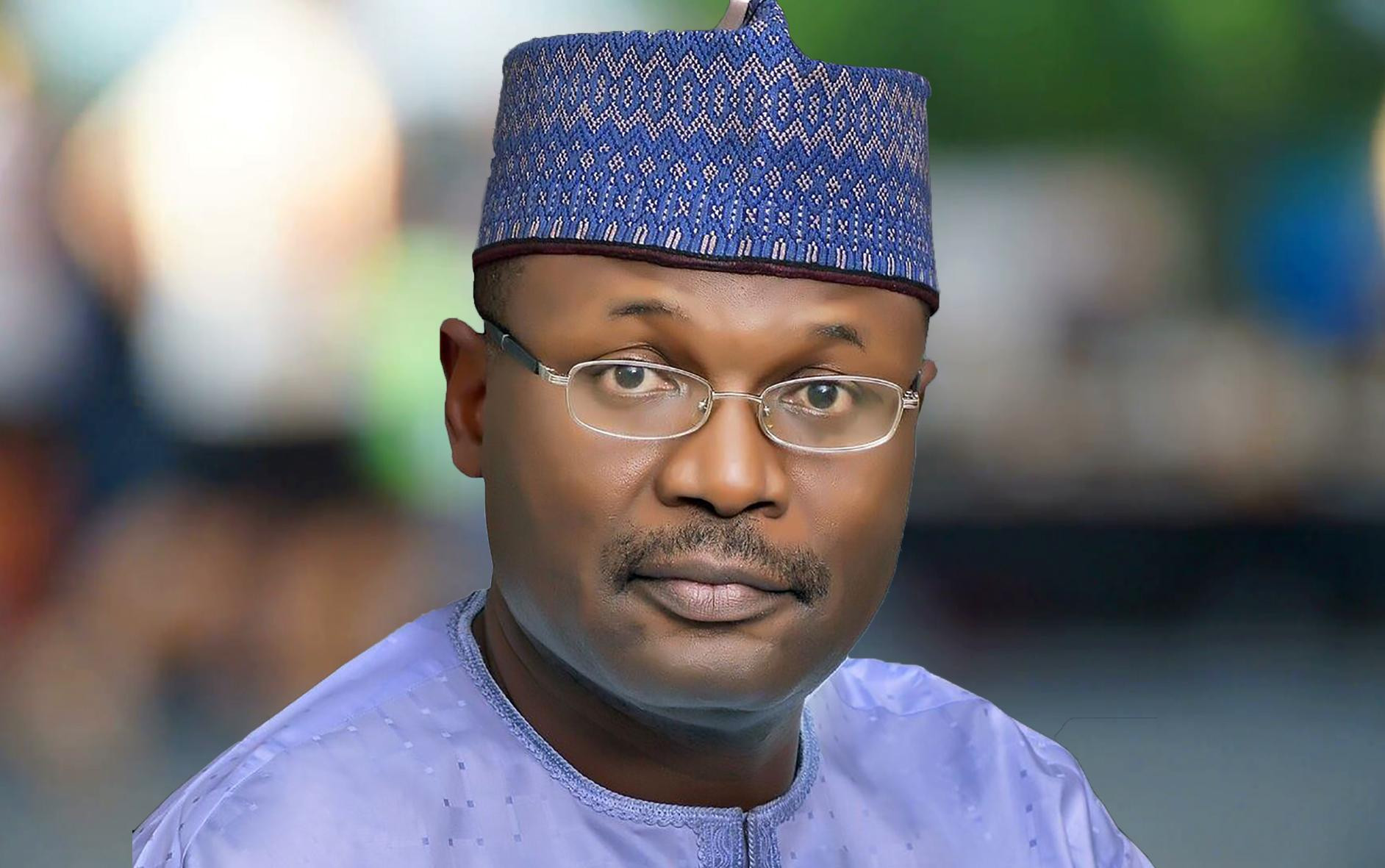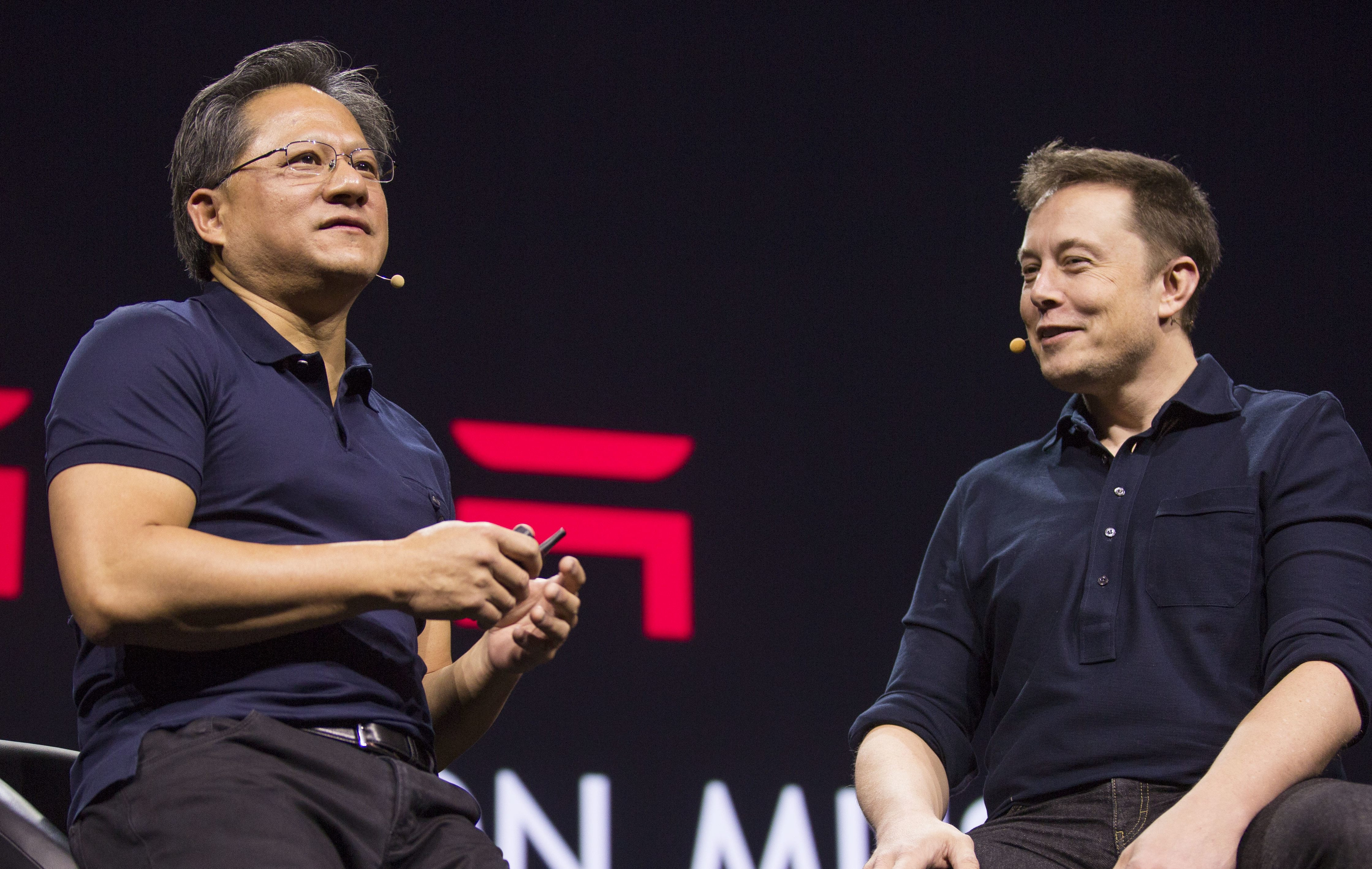Divers recovered the body of a fifth victim of the Bayesian superyacht wreck Thursday morning, Sicily Civil Protection Chief Salvo Cocina confirmed to CBS News, but Italian Coast Guard spokesperson Vincenzo Zagarola said they were still working to recover the sixth and final body from the doomed vessel. The six bodies had remained stuck inside the 184-foot luxury yacht for days after it sank early Monday morning off the coast of Palermo, Sicily in a severe thunderstorm.
Witnesses earlier told several news agencies that a sixth body bag had been brought ashore, but authorities never confirmed the recovery of the final victim.
Four bodies were retrieved Wednesday from the Bayesian, which was on a 90 degree angle on the seafloor at a depth of over 160 feet. The vessel's position and items that moved around inside the ill-fated yacht made recovery efforts slow and hazardous.
Italian authorities have not officially identified the remains recovered from the Bayesian, which belonged to the wife of British tech magnate Mike Lynch. Lynch's wife, Angela Bacares, was among the 15 people who managed to escape from the boat as it sank quickly on Monday, but he and his 18-year-old daughter Hannah were believed to be among the people whose bodies have been recovered.
Another victim, the Bayesian superyacht's chef, was found dead soon after the boat capsized. Along with Lynch and his daughter, the technology mogul's American lawyer Chris Morvillo and his wife Neda, and British banker Jonathan Bloomer and his wife were believed to have been trapped in the yacht when it sank.
Italian media were reporting Thursday that, after questioning survivors and witnesses, Italian prosecutors had opened an official investigation into a possible "culpable shipwreck." No individuals had been named as potential suspects.
On Thursday, Giovanni Costantino, head of the Italian Sea Group, which owns the company Perini Navi, which built the Bayesian in 2008, blamed human error.
"A Perini ship resisted Hurricane Katrina, a Category 5 [hurricane]. Does it seem to you that it can't resist a tornado from here?" he remarked to the newspaper Corriere della Sera. "It is good practice when the ship is at anchor to have a guard on the bridge, and if there was one he could not have failed to see the storm coming. Instead, it took on water with the guests still in the cabin. ... They ended up in a trap, those poor people ended up like mice."
One possible factor could have been that the ship's keel — a fin-like structure that sticks out from the bottom of the boat, designed to provide stability and counterweight to the huge mast — was not fully deployed. The yacht had a retractable keel that could be raised for entry into shallow harbors. But a raised keel at sea would have made the ship much more vulnerable to instability in the strong winds that struck early Monday morning.
When asked whether divers had seen the ship's keel in a raised position, a spokesman for the Italian Coast Guard told CBS News that only the prosecutor investigating the incident could confirm such information but that the Coast Guard "was not denying" it.
The ship's captain, 51-year-old New Zealand national James Cutfileld, was questioned for two hours by prosecutors on Thursday, according to Italian media.
The Body of Mike Lynch Found
Lynch's daughter, Hannah, remains unaccounted for, according to the source, who asked not to be identified due to the sensitive nature of the situation. Sky News earlier reported that five bodies pulled from the wreck had been identified by the Italian coastguard, and that Lynch was among the dead.
Lynch, who was reported missing Monday, was one of 22 passengers aboard the Bayesian superyacht, which capsized while anchored in the small fishing village of Porticello, in the province of Palermo in Italy.
On Wednesday, Salvatore Cocina, the head of the civil protection agency in Sicily confirmed to NBC News that five bodies had been recovered from the wreckage of the yacht. The only person confirmed dead by authorities so far has been Recaldo Thomas, a Canadian-Antiguan chef.
CNBC has contacted the Italian coastguard and is awaiting a response.
Lynch was the founder of enterprise software firm Autonomy. He became the target of a protracted legal battle with Hewlett Packard after the firm accused Lynch of inflating Autonomy's value in an $11.7 billion sale. HP took an $8.8 billion write-down on the value of the company within a year of buying it.
Lynch was acquitted in June of fraud charges in a surprise victory in U.S. court following a trial that lasted for three months. He had faced charges of wire fraud and conspiracy for allegedly scheming to inflate Autonomy's revenue. Lynch denied wrongdoing and told jurors HP botched Autonomy's integration.
Lynch was also the founder of Invoke Capital, a venture capital firm endorsing European tech startups. He became a key voice supporting the U.K. technology industry, backing key names like cybersecurity firm Darktrace and legal tech firm Luminance.
Tributes were paid to Lynch following news of his passing.
Russ Shaw, founder of technology industry groups Tech London Advocates and Global Tech Advocates, said that Lynch "leaves a legacy as one of the great modern British tech entrepreneurs."
"His ability to understand how tech can solve big challenges, and then successfully commercialise it was truly unique" Shaw said in a statement emailed to CNBC. "Mike will rightly be remembered for his work in nurturing some of Britain's great tech companies, including Darktrace, Luminance and Sophia Genetics."
The Royal Academy of Engineering, which made Lynch a fellow in 2008, said that its trustee board, fellows and staff are "deeply saddened" to learn of his death and "send our profound condolences to his family."
"We have fond memories of the active role he played [as a fellow] in the past, as a mentor, donor and former Council member. He was also one of the inaugural members on the Enterprise Committee," the academy said on the social media platform X. "Our thoughts are with his family and friends at this time."
Lord John Browne, the former CEO of energy firm BP, said in a post on X that Lynch "should be remembered as the person who catalysed a breed of deep tech entrepreneurs in the U.K. His ideas and his personal vision were a powerful contribution to science and technology in both Britain and globally."
Search Efforts Resume
Search efforts off the coast of Sicily for two remaining bodies missing from the sunken yacht belonging to the wife of British tech magnate Mike Lynch were due to resume early on Thursday.
On Wednesday four bodies were retrieved from the wreck and transported to nearby hospitals, in the city of Palermo.
A source said a fifth body might have been located late on Wednesday, but the fire brigade and the coast guard, overseeing the operations, did not confirm this.
Italian authorities did not officially identify the corpses, but Britain's Daily Telegraph reported that two of the dead were Lynch and his 18-year-old daughter. Italy's Corriere della Sera said the only bodies identified so far were Morgan Stanley banker Jonathan Bloomer and U.S. lawyer Chris Morvillo.
Fifteen people, including Lynch's wife, managed to escape the boat before it capsized, while the body of the onboard chef, Canadian-Antiguan national Recaldo Thomas, was found near the wreck hours after the disaster.
Operations have been challenging due to the depth and the narrowness of the places that the divers are scouring, the fire brigade said in a statement.
It compared the efforts to those carried out, on a larger scale, for the Costa Concordia, the luxury cruise liner that capsized off the Italian island of Giglio in January 2012, killing 32 people.
Unsinkable?
The disaster has baffled naval marine experts who said such a vessel, built by Italian high-end yacht manufacturer Perini and presumed to have top-class fittings and safety features, should have been able to withstand such weather.
Prosecutors in the nearby town of Termini Imerese have opened an investigation and authorities have started questioning passengers and witnesses.
The captain and crew have made no official comment on the disaster.
Giovanni Constantino, CEO of the Italian Sea Group TISGR.MI, which includes Perini, said the Bayesian was "one of the safest boats in the world" and basically unsinkable.
He added that he believed the disaster was caused by a chain of human mistakes and that the storm had been expected, in interviews with Italian media.
"The ship sank because it took on water, from where investigators will have to say," Costantino told television news program TG1 late on Wednesday.
Citing data from the yacht's automatic tracking and based on available footage, Costantino said it took 16 minutes from when the wind began buffeting the yacht and it began taking on water for it to sink.
Costantino said the Milan-listed group had suffered "enormous damage" to its reputation, with shares falling 2.5% since the disaster.
A Life of Success and Controversy
A cruise on the Mediterranean Sea aboard a superyacht was supposed to be a celebratory event for the British tech entrepreneur Mike Lynch, who was acquitted in June of fraud charges tied to the sale of his company, Autonomy, to the tech giant Hewlett-Packard.
Instead, it turned into a disaster after the yacht, a 180-foot boat called the Bayesian, sank off the coast of Sicily in a violent storm. Of the 22 passengers aboard, 15 were rescued, six bodies were recovered and one was still missing. Search operations at the site of the sunken yacht were continuing on Thursday.
Mr. Lynch, 59, is a British software entrepreneur who had once been described as his country’s Bill Gates. He founded the software firm Autonomy, which analyzed clients’ unorganized data, and turned it into one of the most prominent British technology companies of its time. He became a widely known corporate leader, who advised David Cameron, the British prime minister at the time, and joined the board of the BBC.
In 2011, Mr. Lynch sold Autonomy to Hewlett-Packard for $11 billion, which was far above its market value, earning him hundreds of millions. But HP investors almost immediately soured on the transaction, and the American tech giant quickly fired its chief executive — and then Mr. Lynch.
HP later accused Mr. Lynch of misleading it about the state of Autonomy’s business, setting off a decade-long legal ordeal for the British executive, who denied the accusations. U.S. prosecutors charged him and other executives with fraud, and Autonomy’s chief financial officer was convicted in 2018.
Despite appeals to the British government, Mr. Lynch was extradited to the United States last year and was confined to a townhouse in San Francisco ahead of his criminal trial, which began in March. Facing the possibility of decades in prison if convicted, Mr. Lynch and another colleague were instead acquitted of all charges.




